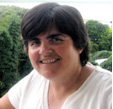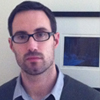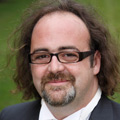
Media & Social Change | School of Communications DCU
Media and Social Change - Research Group
This research group focuses on the relationship between media and society beyond the scope of politics and power, drawing on long-established DCU expertise in audience research and the representational politics of popular culture. Change is addressed here both in terms of social concerns about media influence (cyberbullying, pro-anorexia websites, new media literacy, sexualisation and commercialisation of children, the representation of gender, ethnicity, sexuality, ageing in advertising, 'pornification' [sexualisation?] of popular culture) as well as in new media's potential to transform how we learn and communicate (ICTs and digital games in education, online campaigns to combat racism, homophobia, depression and suicide, etc. and developments in health communication, e.g. effectiveness of online treatment programmes for eating disorders).
Broad research questions for the Centre for Media and Social Change include:
- How are new communication technologies such as Skype, Facebook and Twitter transforming family and close social relationships?
- How are new forms of information search, storage and processing such as Google and Wikipedia transforming the acquisition of knowledge and understanding?
- How is the evolving interaction of old and new media transforming global creative and entertainment industries?
Members of the Research Group
 Dr. Debbie Ging's research focuses on all aspects of gender and sexuality in the media. She has published extensively on men and masculinity in the media and in Irish cinema. She is a member of the International Advisory Board for the journal Men and Masculinities and of the Editorial Board of Gender, Sexuality and Feminism .
Dr. Debbie Ging's research focuses on all aspects of gender and sexuality in the media. She has published extensively on men and masculinity in the media and in Irish cinema. She is a member of the International Advisory Board for the journal Men and Masculinities and of the Editorial Board of Gender, Sexuality and Feminism .
Debbie is interested in supervising masters and PhD theses on: gender, sexuality and ethnicity in the media, cyberbullying, sexualisation of children, digital games in education, audience research
Debbie Ging's personal homepage
 Dr. Miriam Judge has worked in the audio visual industry as a Corporate Video Producer/Director, researcher and scriptwriter and in the computer industry in a training and instructional design capacity. She is an expert in the area of ICT in Education and e-learning and published a number of important national studies on this topic.
Dr. Miriam Judge has worked in the audio visual industry as a Corporate Video Producer/Director, researcher and scriptwriter and in the computer industry in a training and instructional design capacity. She is an expert in the area of ICT in Education and e-learning and published a number of important national studies on this topic.
Miriam is interested in supervising masters and PhD these on: the use of technology in education, E-learning, computer mediated learning, video conferencing technology, qualitative research methodologies, instructional design and e-learning technologies, technology and society
 Dr. Neil O’Boyle is a member of the Migration and Citizenship Research Initiative in UCD. He was formerly the lead researcher on the IRCHSS theme-funded project 'Immigration and Social Change in the Republic of Ireland' (based in UCD) and is co-author of the report 'New Irish Politics: Political Parties and Immigrants in 2009'. Neil’s research interests include migration, communication theory and the cultural industries.
Dr. Neil O’Boyle is a member of the Migration and Citizenship Research Initiative in UCD. He was formerly the lead researcher on the IRCHSS theme-funded project 'Immigration and Social Change in the Republic of Ireland' (based in UCD) and is co-author of the report 'New Irish Politics: Political Parties and Immigrants in 2009'. Neil’s research interests include migration, communication theory and the cultural industries.
Neil is interested in supervising masters and PhD theses on: advertising, migration, communication theory
 Declan Tuite has a background in production having worked in studio and live as a sound engineer/producer and more recently in the role of research and development in interactive TV and Web services before taking up a teaching role in DCU
Declan Tuite has a background in production having worked in studio and live as a sound engineer/producer and more recently in the role of research and development in interactive TV and Web services before taking up a teaching role in DCU
Declan’s research is concerned with the effects of ICTs on society. Of particular interest are behaviours developed by people in polymedia contexts in maintaining and repairing personal and family relationships, and how these effect perceptions and interpretations of trust and intimacy.
Declan is interested in supervising masters and PhD theses on: eInclusion, ICT and Society, ICT and relationship repair and maintainance.
